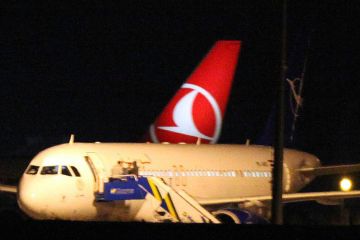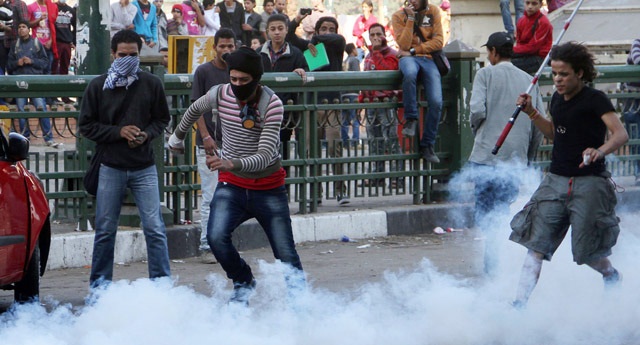The Shias of South Lebanon and the Israelis should seek joint therapy for their unhealthy relationship. Their mutual resentment, distrust and geopolitics lead to new disasters every time. Hezbollah is currently celebrating what it considers its victory in the war with Israel last year at an exhibition in Beirut s southern suburbs. Families with little kids stroll around the grounds, taking in displays that mingle gore, glitter and above all glory. The mood is elated but also determined because it seems as if every last woman, man and child expects a new war, much in the same way as so many Israelis are convinced that there will be a next round .
Not that either the Israelis or the Lebanese are looking forward to a new period of bloodletting, destabilization, economic hardship and all the other consequences of conflict. But once again, Lebanon in particular seems to be caught up in a web of domestic, regional and international circumstances that is dragging the country inexorably toward a new abyss. Even if it is not be tipped into the void, just the incessant sense of crisis, which started well before last year s war, may well grind the country down to such an extent that serious questions about its sustainability will emerge again, as they did during the civil war.
The internal Lebanese crisis cannot and could never before be seen in isolation from the regional situation. Last year s war is being used by the various Lebanese factions to justify their domestic political positions. Hezbollah has since the war been emphasizing that the US supports both Israel and the Lebanese government of Prime Minister Fouad Seniora. The Shia movement has to all effects and purposes accused the ruling anti-Syrian majority of treason, of having engineered or extended the war and of being an American puppet. Now that both sides are gearing up for the immensely important and controversial vote in Parliament to choose a new president later this fall, Hezbollah has upped the rhetoric another notch. We will not allow the American scheme, which we buried last July, to come into being again through the upcoming presidential elections, said Nabil Kawook, Hezbollah s commander in the south. Obviously, the tone is polarizing and the majority, which encompasses a large part of the Sunni Muslim community, bristles at being cast as pro-Israeli American puppets. And despite many claims to the contrary, resentment against Hezbollah for starting last year s war and then paralyzing the country politically and Beirut s downtown commercially is running high among the movement s opponents.
Both sides would have had different sticks anyway to beat each other with if last year s war had not taken place. The international tribunal for the assassination of former Prime Minister Rafiq Hariri remains a hot topic as does the extent of desirable Syrian influence in the country as well as Hezbollah s weapons. A national dialogue among the parties before last year s war did not go anywhere. In fact, it s more than likely that Lebanon s internal disagreements were a major contributing factor in the outbreak of last year s war. Not only in the sense that the country s internal divisions and its weakness lay it open to foreign intervention or to militant groups using its territory to launch attacks. This time the lingering feeling among many is that they are facing a choice between two unpalatable extremes: either perpetual war and tension with Israel if Hezbollah gets its way or American dependency with all the concomitant tensions that internal and regional resistance to such a state idea will bring.
There is no easy fix to this dilemma, especially since a middle ground barely exists and Lebanon s political system is particularly ill equipped to deal with existential political questions that go beyond how to divide the loot. A good first step would be for Hezbollah to accept that it can remain relevant even if it does not provoke wars and even if it does not build up one of the largest strategic weapons arsenals in the region. For that to happen it would be essential that the other groups and the government take concrete steps to make it very clear that the Shias and other relatively disadvantaged sectors of Lebanese society can get a fair shake in the country, politically and financially – something that still requires a lot of work.
Ferry Biedermanis a reporter for the Financial Times based in Beirut. This commentary is published by DAILY NEWS EGYPT in collaboration with bitterlemons-international.org

